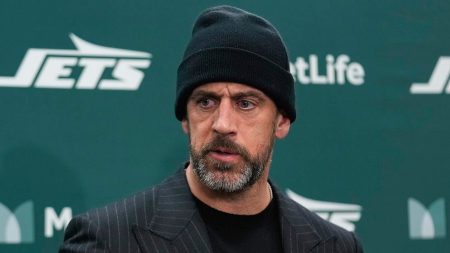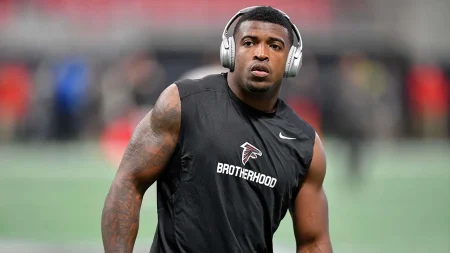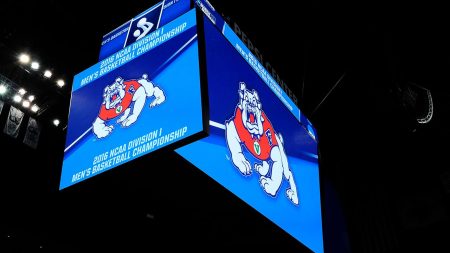The Pittsburgh Steelers’ season concluded with a disheartening 28-14 playoff defeat against their divisional rivals, the Baltimore Ravens, extending their postseason losing streak to six consecutive games. Despite a brief resurgence in the third quarter, fueled by two Russell Wilson touchdown passes, the Steelers ultimately succumbed to a dominant Ravens performance. Baltimore’s offensive juggernaut, spearheaded by running back Derrick Henry, overwhelmed the Pittsburgh defense while their own offense sputtered, managing only two scoring drives throughout the entire game. The stark disparity in offensive production was evident in the final yardage tally, with Baltimore amassing 464 yards compared to Pittsburgh’s meager 280, despite both teams having an equal number of possessions.
George Pickens, the Steelers’ outspoken wide receiver who has consistently critiqued the team’s offensive struggles throughout the season, offered a cryptic assessment of the unit’s performance. While acknowledging signs of improvement compared to his rookie year, Pickens expressed a lack of optimism for the future, succinctly stating, “Uh, nah,” when questioned about his outlook. Despite leading the team in receiving yards with 87 on five catches, including one touchdown reception, Pickens’ subdued response underscored the deep-seated offensive issues that plagued the Steelers throughout the year.
Head Coach Mike Tomlin shouldered the responsibility for the team’s playoff exit, emphasizing his focus on the players’ efforts and the overall journey of the season, rather than dwelling on his own personal record. Tomlin acknowledged the disappointing end to a season that held promise at times but ultimately fell short of expectations. His comments reflected a commitment to introspection and evaluation, recognizing the need to address the shortcomings that led to another early postseason exit.
The Steelers’ offensive struggles were a recurring theme throughout the season, hindering their ability to consistently compete against top-tier opponents. While individual players like Pickens flashed potential, the collective unit lacked the cohesion and execution necessary to sustain drives and put points on the board. The inability to establish a balanced offensive attack, coupled with a defense that struggled to contain opposing offenses, ultimately sealed the Steelers’ fate.
The Ravens, on the other hand, showcased a potent and balanced offensive approach, effectively utilizing both their running and passing games to dismantle the Steelers’ defense. Derrick Henry’s dominant rushing performance provided a consistent foundation for the Ravens’ offense, while their passing game capitalized on opportunities created by the ground attack. This multifaceted offensive strategy proved too much for the Steelers to handle, culminating in a decisive victory for Baltimore.
Looking ahead, the Steelers face a crucial offseason where they must address the offensive deficiencies that have hampered their progress in recent years. The team needs to evaluate its personnel, coaching strategies, and overall offensive philosophy to develop a more cohesive and productive unit. While individual talent exists within the roster, the Steelers must find a way to unlock their full potential and create a system that maximizes their strengths. Failure to do so will likely result in another disappointing season and a continuation of their postseason woes. The comments by Pickens and the reflective words of Tomlin suggest a recognition of these challenges within the organization, indicating a potential turning point in the team’s approach moving forward.










